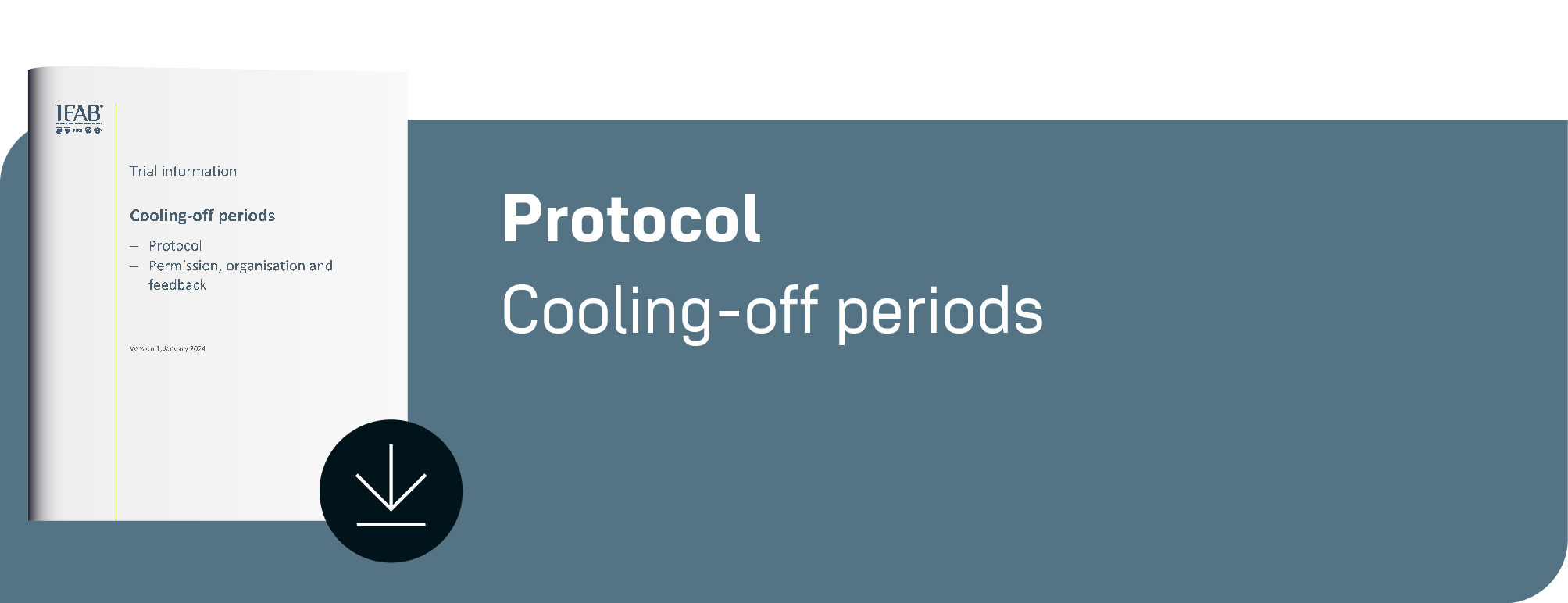Cooling-off periodsCooling-off periods
At a glance
- Purpose: Allow referees to suspend play to allow tempers to cool, prevent confrontations, and protect player safety
- Approved at: IFAB Annual Business Meeting (December 2024)
- Scope: Available only to competitions without top two domestic league teams or senior ‘A’ international teams
- Trial period: Ongoing, with feedback collected from participating competitions
- Contact: [email protected]
Background
While Law 5 already allows referees to stop, suspend, or abandon matches due to outside influence (e.g., spectator misbehaviour), certain on-field confrontations between players and team officials can threaten safety and match control.
A formal cooling-off period gives referees a tool to:
- Pause play when tensions run high.
- Allow emotions to settle before resuming.
- Encourage captains and coaches to promote proper conduct among their teams.
Trial protocol
Referee signal
- Blow the whistle.
- Raise both arms above the head and cross wrists.
- Uncross arms and push them sideways at shoulder level to send players to their designated area.
Player movement
- All players must move to and remain in their own penalty area (or another safe area chosen by the referee).
- Failure to comply may result in a yellow card.
Meeting during suspension
- Captains, coaches, and any approved officials meet the referee and assistants in the centre circle to:
- Hear the reason for suspension.
- Learn expected duration.
- Receive instructions for resumption.
Team officials & substitutes
- Must remain off the field in the technical area, except one person to:
- Provide drinks to players.
- Assess or treat injured players.
Duration & resumption
- Referee decides the cooling-off length (weather and incident severity considered).
- Captains recalled to centre circle when play is ready to restart.
- A short warm-up period may be allowed before resumption.
Limits
- Maximum two cooling-off periods per match.
- If conditions remain unsafe after two periods, match is abandoned.
- Referee may abandon a match without any cooling-off period if necessary.
Suspension for outside interference
-
- First part of the signal (arms crossed above head) may be used for non-participant interference.
- Players may be sent to changing rooms or tunnel area instead of penalty areas for safety.
Participation & permissions
- Competitions must apply to The IFAB via their national FA or confederation.
- The trial protocol must be followed in full; no variations without written IFAB approval.
- Feedback and technical data must be supplied to The IFAB for review.

